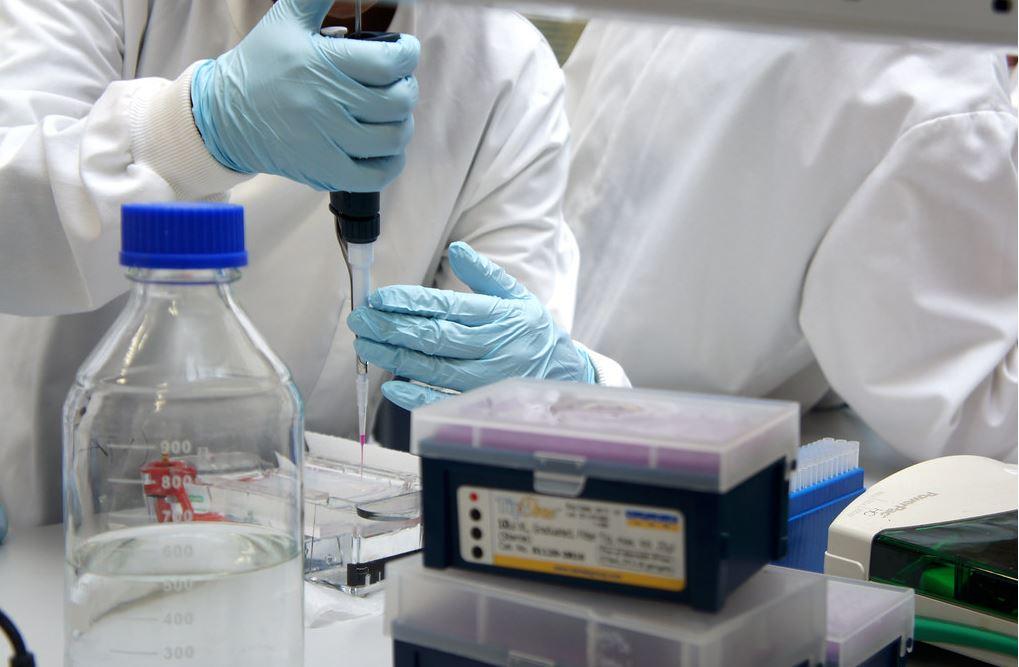International Clinical Trials Day 2019
 Every 20th May, we celebrate International Clinical Trials Day. Clinical methods have evolved drastically over the years, and decades of honing this process has given rise to the present-day standard of clinical trials. They ensure that the process of researching and putting medical treatments into practice is ethical, efficient, and scientifically sound.
Every 20th May, we celebrate International Clinical Trials Day. Clinical methods have evolved drastically over the years, and decades of honing this process has given rise to the present-day standard of clinical trials. They ensure that the process of researching and putting medical treatments into practice is ethical, efficient, and scientifically sound.
Our Centre for Experimental Cancer Medicine (CECM) adheres to high standards in translating ground-breaking cancer research from the laboratory to the patient through clinical trials. Each clinical trial holds the possibility of bettering current therapeutic strategies and improving patient outcomes.
Investigating new treatment combinations
Our researchers have been involved in a number of clinical trials in the last year, which have shown promising outcomes for patients. A phase III trial, led by Professor Peter Schmid, Lead for our CECM, looked at combining immunotherapy atezolizumab with standard chemotherapy for the treatment of triple-negative breast cancer (TNBC). The treatment combination extended survival in patients by up to 10 months, representing a major step forward for the treatment of this disease and showing for the first time that immune therapy has a substantial survival benefit in TNBC.
Another phase III trial, co-led by Professor Thomas Powles from our CECM, explored a new combination of drugs as a potential therapy for clear-cell metastatic renal cell carcinoma (RCC), a type of advanced kidney cancer. Kidney cancer is the UK’s 7th most common cancer and 80% of kidney cancer cases in the UK are RCCs.
The trial compared the effects of two drugs, pembrolizumab and axitinib, with the current standard therapy, sunitinib. The dual-therapy was associated with a 47% reduction in the risk of mortality compared with the mono-therapy. The outlook for metastatic RCC is often bleak, thus the findings of this trial will help to provide a vital new treatment option for patients.
As well as searching for new treatments for common cancers, we are equally committed to doing the same for rare cancers, such as brain tumours. Unfortunately, research for rare cancers receives a general lack of funding, and consequentially, these carry with them poorer prognoses and survival rates.
Professor Peter Szloserek led a phase I trial which assessed the outcome of using drug ADI-PEG20 to enhance standard chemotherapies for the treatment of recurrent high-grade gliomas, a form of brain tumour. This treatment combination showed encouraging efficacy in patients, and a phase II trial is now being developed to further assess the efficacy of this treatment in a larger patient cohort.
A network of centres dedicated to finding new treatments
Our CECM is also part of the Barts ECMC, which is a member of the larger ECMC Network made up of 18 adult centres and 11 paediatric locations across the UK. The ECMC Network is dedicated to supporting pioneering, early-stage clinical trials and translation of scientific discoveries into new cancer treatments for patients.
Barts ECMC currently has over 250 active oncology trials covering a wide range of tumour groups and in the last year has recruited 792 patients to trials and opened 66 new trials. One new trial currently in the first phase is evaluating the safety of the Personalised Cancer Vaccine (PCV) RO7198457. PCV allows for an individualised vaccine to be made from a patient’s tumour cells and blood. By the concept of immunological memory, the PCV works by “teaching” the patient’s immune system to identify and destroy cancer cells. This is hoped to show promising outcomes in patients with locally advanced or metastatic cancers who require highly tailored treatment regimens and who may have very limited treatment options available to them.
Speaking of the clinical trials currently underway at the Barts ECMC, Hannah Payne, Lead Cancer Research Nurse at Barts Health NHS Trust, said:
The clinical trials at the Barts ECMC will hopefully offer some patients the opportunity to receive drugs which are otherwise not available to them. They are complex, challenging trials, but also extremely exciting and motivating. As a team we are privileged to be able to work at the forefront of cancer care in this way.
Barts ECMC is motivated to continuously work on novel therapeutic possibilities, and has the capacity to offer innovative trials to over 9,000 patients per year. Sadly, there are more than 360,000 new cancer cases diagnosed in the UK each year. As part of the Barts ECMC, we are committed to ensuring that our laboratory research continues to feed through the translational pipeline via our CECM to help improve the lives of those with cancer.
Article co-author: Yee Neng Adaylia Faith Loo, Medical Student
Category: General News

No comments yet